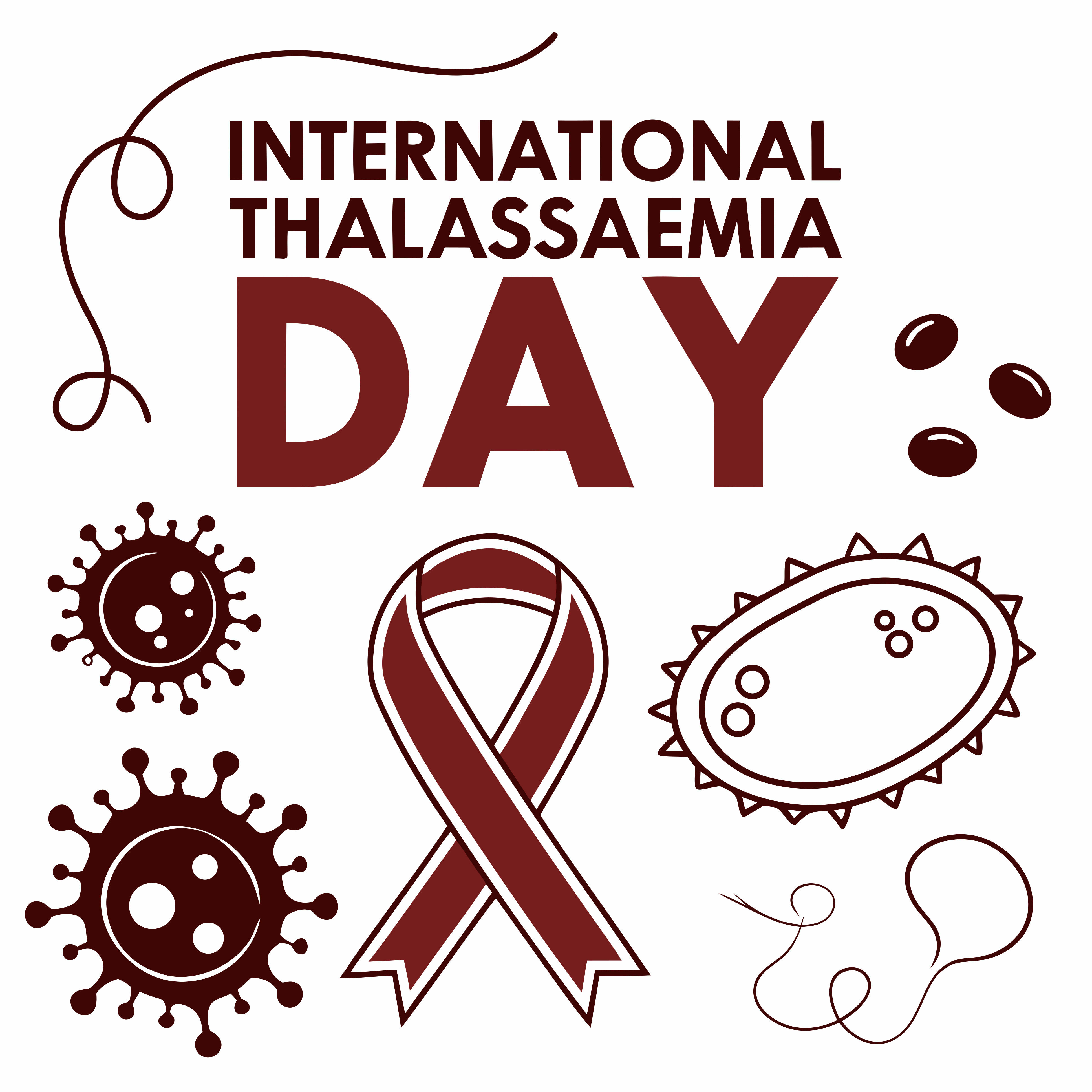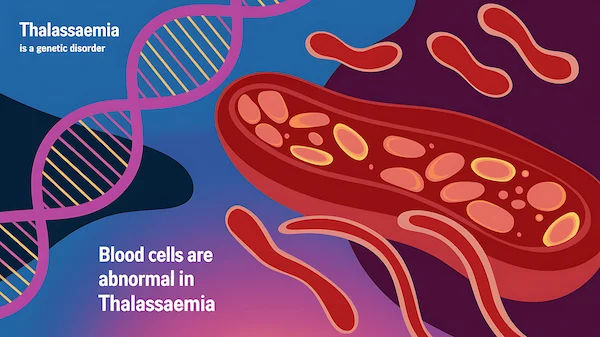Thalassaemia Testing and Its Screening Importance
Learn about the crucial role of thalassemia testing and screening. Understand why early detection is vital for couples and families to manage this genetic blood disorder.

Written by Dr. Rohinipriyanka Pondugula
Reviewed by Dr. J T Hema Pratima MBBS, Fellowship in Diabetes Mellitus
Last updated on 13th Jan, 2026

Thalassaemia is a genetic blood disorder that affects the body’s ability to produce healthy red blood cells and hemoglobin. If left undiagnosed, it can lead to severe anemia, fatigue, and other complications. However, early detection through thalassaemia testing and screening can help manage the condition effectively and prevent serious health risks.
In this article, we’ll discuss what thalassaemia is, why testing is important, who should get screened, and how you can take proactive steps for a healthier future.
What is Thalassaemia?
Thalassaemia is an inherited blood disorder where the body produces less hemoglobin than normal. Hemoglobin is the protein in red blood cells that carries oxygen throughout the body. When hemoglobin levels are low, the body doesn’t get enough oxygen, leading to anemia and other health problems.
There are two main types of thalassaemia:
1. Alpha Thalassaemia – Caused by missing or mutated alpha globin genes.
2. Beta Thalassaemia – Caused by defects in beta globin genes.
Depending on the severity, thalassaemia can be:
Minor (Trait): Mild or no symptoms; carriers can pass it to children.
Major: Severe anemia requiring lifelong blood transfusions.
Why is Thalassaemia Testing Important?
1. Early Detection Helps in Better Management
If thalassaemia is diagnosed early, doctors can recommend treatments like blood transfusions, iron chelation therapy, or bone marrow transplants to improve quality of life.
2. Prevents Severe Complications
Untreated thalassaemia major can cause:
Severe anemia
Bone deformities
Enlarged spleen
Heart and liver problems
3. Helps in Family Planning
Since thalassaemia is genetic, couples planning to have children should get tested. If both parents are carriers, there’s a 25% chance their child may have thalassaemia major. Screening helps in making informed decisions.
4. Reduces Burden on Healthcare
Early screening reduces the need for frequent hospital visits and expensive treatments later in life.
Who Should Get Tested for Thalassaemia?
Thalassaemia testing is recommended for:
Couples planning pregnancy – To check carrier status.
People with a family history of thalassaemia or anemia.
Individuals with symptoms like fatigue, weakness, pale skin, or jaundice.
Newborns and children in high-risk populations.
Consult a General Physician for the best advice
How is Thalassaemia Diagnosed?
Several tests help diagnose thalassaemia:
1. Complete Blood Count (CBC)
Checks hemoglobin levels and red blood cell size.
2. Hemoglobin Electrophoresis
Identifies abnormal hemoglobin types.
3. DNA Testing
Confirms genetic mutations causing thalassaemia.
4. Prenatal Testing
For pregnant women at risk, tests like chorionic villus sampling (CVS) or amniocentesis can detect thalassaemia in the baby.
Tips for Managing Thalassaemia
If you or a loved one has thalassaemia, here’s how to manage it better:
1. Regular Medical Checkups
Frequent blood tests and doctor visits help monitor the condition.
2. Healthy Diet
Eat iron-rich foods (if not on transfusions) or avoid excess iron (if on transfusions).
Include folate (leafy greens, lentils) and vitamin C (citrus fruits) to support red blood cell production.
3. Avoid Iron Overload
Patients getting blood transfusions may accumulate excess iron, which can damage organs. Iron chelation therapy helps remove extra iron.
4. Stay Active
Light exercises like walking or yoga can improve energy levels.
5. Genetic Counseling
If you’re a carrier, consult a genetic counselor before planning a family.
How Can You Get Tested?
If you suspect thalassaemia or want to get screened, Apollo 24|7 offers convenient and reliable testing options. You can:
Book a blood test online
Consult a hematologist for expert advice
Get prenatal screening if planning a pregnancy
Early testing can save lives and ensure better health outcomes.
Final Thoughts
Thalassaemia is a serious but manageable condition if detected early. Screening is crucial, especially for couples planning a family or individuals with a family history of anemia. By staying informed and taking proactive steps, you can protect your health and the well being of future generations.
If you have concerns about thalassaemia, don’t wait—get tested today and take control of your health!
Consult a General Physician for the best advice
Consult a General Physician for the best advice

Dr D M Karthik
General Practitioner
4 Years • MBBS, Fellowship in Diabetes Mellitus, Advance certificate in Diabetes Mellitus, Derma Nutrition Certification
Visakhapatnam
Apollo 24|7 Clinic - Andhra Pradesh, Visakhapatnam

Dr. M L Ezhilarasan
General Practitioner
6 Years • MBBS
Visakhapatnam
Apollo 24|7 Clinic - Andhra Pradesh, Visakhapatnam

Dr. Ajay K Sinha
General Physician/ Internal Medicine Specialist
30 Years • MD, Internal Medicine
Delhi
Apollo Hospitals Indraprastha, Delhi
(200+ Patients)

Dr Aakash Andgi
General Physician/ Internal Medicine Specialist
9 Years • MBBS MD
Bengaluru
Apollo Clinic, JP nagar, Bengaluru

Dr. Swarna Deepak K
General Physician/ Internal Medicine Specialist
20 Years • MBBS: MD (Internal Medicine) MRCP (UK), EDIC (European Diploma in Critical Care), IDCCM, IFCCM (Critical Care), FID (Royal Liverpool Academy)
Hyderabad
Apollo Hospitals Jubilee Hills, Hyderabad
(425+ Patients)



.webp)
